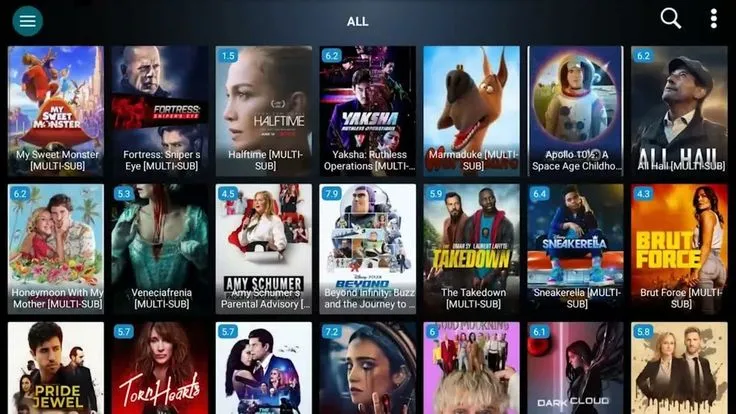Understanding the IPTV Landscape
How to Stay Safe While Using IPTV – In today’s digital streaming revolution, IPTV (Internet Protocol Television) has emerged as a popular alternative to traditional cable and satellite services. With the promise of extensive channel lineups, on-demand content, and often at a fraction of the cost of conventional subscriptions, it’s no wonder that millions of viewers worldwide are making the switch. However, navigating the IPTV world safely requires knowledge and vigilance that many users overlook in their excitement to access affordable entertainment.
Whether you’re a curious newcomer or a seasoned IPTV user looking to enhance your digital security, this comprehensive guide will walk you through everything you need to know about using IPTV safely. The internet can be a treacherous place, and without proper precautions, your IPTV experience could lead to privacy breaches, malware infections, or even legal complications.
As streaming technologies continue to evolve, so do the associated risks. From unscrupulous providers collecting your personal data to potential malware hidden in unauthorized applications, the dangers are real but fortunately avoidable with the right approach. This guide aims to equip you with the essential knowledge and practical strategies to enjoy IPTV services while maintaining your digital security and privacy.
What Is IPTV and Why Security Matters
Understanding IPTV Basics
IPTV delivers television content over Internet Protocol (IP) networks instead of through traditional satellite or cable formats. This technology allows you to stream media content directly to your device whenever you want, offering unprecedented convenience and flexibility.
Unlike conventional TV broadcasting, IPTV uses internet connections to deliver content, which creates unique security considerations. Your viewing habits, personal information, and even financial details can potentially be accessed without proper safeguards in place. According to a cybersecurity report by Norton, streaming services have become increasingly targeted by cybercriminals due to their growing popularity and the valuable user data they contain.
The Growing IPTV Landscape
The IPTV market is projected to reach $267.7 billion by 2030, according to Grand View Research. This explosive growth has attracted legitimate service providers but also numerous unauthorized operators. The distinction between legal and illegal services isn’t always clear to consumers, which can lead to unintentional legal exposure.
Types of IPTV Services
To understand the security implications, it’s essential to recognize the different types of IPTV services available:
- Licensed IPTV Providers: These include mainstream services like YouTube TV, Hulu Live TV, and Sling TV, which have proper licensing agreements with content creators.
- Telecom-Based IPTV: Services offered by telecommunications companies as part of their internet packages, such as AT&T TV.
- Independent IPTV Services: Smaller companies offering legitimate IPTV packages, though these require careful vetting.
- Unauthorized IPTV Services: Services that offer premium content without proper licensing agreements, often at suspiciously low prices.
The security risks vary significantly depending on which category your IPTV provider falls into, with unauthorized services naturally posing the highest potential threat to your digital safety.
Common Security Risks When Using IPTV
Data Privacy Concerns
When using IPTV services, you’re often required to share personal information and payment details. With unauthorized providers, there’s no guarantee of how this sensitive information will be handled. According to the Federal Trade Commission, companies collecting personal data should implement reasonable security measures—but many IPTV services operate outside regulatory oversight.
Malware and Malicious Software
Illegitimate IPTV applications and add-ons frequently serve as vectors for malware distribution. These can include:
- Trojans: Hidden software that creates backdoors to your device
- Ransomware: Malicious programs that lock your files until a ransom is paid
- Cryptojackers: Hidden miners that use your device’s resources to mine cryptocurrency
- Spyware: Programs that monitor your activities and harvest sensitive information
The risk is particularly high with free IPTV services or those requiring you to install unofficial applications outside of recognized app stores.
Financial Fraud Risks
Many questionable IPTV services operate on subscription models that require payment information. Without proper security measures:
- Your credit card details could be stolen
- You might be charged for services you didn’t agree to
- Subscription cancellation may be difficult or impossible
- Your payment information could be sold on dark web marketplaces
Legal Implications of Unauthorized IPTV Use
It’s crucial to understand that using unauthorized IPTV services can expose you to legal risks:
- Accessing pirated content may violate copyright laws
- In many jurisdictions, even streaming (not downloading) unlicensed content can be illegal
- Penalties can range from warning letters to significant fines
- Internet Service Providers (ISPs) may be required to monitor and report suspicious streaming activities
How to Identify Safe IPTV Services
Legitimate vs. Suspicious IPTV Providers
One of the most important steps in staying safe while using IPTV is selecting a legitimate provider. Here are key indicators to help you distinguish between safe and potentially harmful services:
Signs of Legitimate IPTV Services:
- Transparent Company Information: Legitimate businesses provide clear contact details, physical addresses, and business registration information.
- Professional Website: A well-designed website with comprehensive terms of service, privacy policy, and customer support options.
- Reasonable Pricing: If the deal seems too good to be true, it probably is. Legitimate services have costs associated with licensing content.
- Free Trial Period: Reputable providers often offer limited free trials without requiring payment information upfront.
- Available on Official App Stores: Their applications can be found on official platforms like Google Play Store or Apple App Store.
- Clear Content Licensing: They explicitly state their content licensing arrangements and partnerships.
Red Flags of Suspicious IPTV Services:
- Unrealistic Channel Offerings: Advertising thousands of premium channels for a fraction of normal subscription costs.
- Minimal Contact Information: Limited or non-existent customer service options.
- Poor Website Quality: Unprofessional design, numerous spelling errors, or broken links.
- Payment Method Limitations: Only accepting cryptocurrency or wire transfers without traditional payment options.
- No Clear Terms of Service: Missing or vague terms regarding subscription, cancellation, or refund policies.
- Excessive Ads or Pop-ups: Intrusive advertising can indicate a service more focused on generating ad revenue than providing quality service.
Researching IPTV Provider Reputation
Before committing to any IPTV service, conduct thorough research:
- Read Independent Reviews: Look for detailed reviews from technology websites and forums rather than testimonials on the provider’s website.
- Check Social Media Feedback: Explore user comments on platforms like Reddit, Twitter, and Facebook.
- Verify Business Credentials: Use resources like Better Business Bureau or similar organizations in your country to check for complaints.
- Search for News Articles: Look for any news related to the provider, particularly regarding security incidents or legal issues.
- Forum Discussions: Technology forums often have extensive discussions about various IPTV services and their reliability.
Essential Security Measures for Safe IPTV Usage
Using VPN for Enhanced Security
A Virtual Private Network (VPN) is perhaps the most powerful tool for safe IPTV use. Here’s how a quality VPN enhances your security:
- Encrypts Your Internet Traffic: Prevents your ISP and potential eavesdroppers from monitoring your streaming activities.
- Masks Your IP Address: Adds a layer of anonymity to your online activities.
- Bypasses Geographic Restrictions: Allows access to region-locked content (though always check the legality in your jurisdiction).
- Prevents ISP Throttling: Some ISPs intentionally slow down streaming traffic, which a VPN can help avoid.
When selecting a VPN for IPTV streaming, prioritize these features:
- No-logs Policy: Ensures the VPN provider doesn’t keep records of your online activities.
- Kill Switch: Automatically disconnects your internet if the VPN connection drops, preventing accidental exposure.
- Strong Encryption: Look for AES-256 encryption, the industry standard.
- Adequate Speed: Streaming requires consistent bandwidth, so choose a VPN known for reliable performance.
- Multiple Server Locations: Gives you flexibility in accessing different content libraries.
Secure Payment Methods for IPTV Subscriptions
How you pay for IPTV services significantly impacts your financial security:
- Virtual Credit Cards: Services like Privacy.com allow you to create single-use card numbers linked to your account, limiting potential exposure.
- PayPal: Offers purchase protection and doesn’t share your full financial details with the merchant.
- Prepaid Cards: Limits potential losses to the amount loaded on the card.
- Cryptocurrency: While offering anonymity, be cautious as transactions are typically irreversible.
Regardless of payment method, regularly monitor your statements for unauthorized charges and consider using a dedicated email address for IPTV subscriptions to limit potential spam.
Device Security Best Practices
Your streaming device serves as the gateway for your IPTV experience and potentially for security threats:
- Keep Systems Updated: Regularly update your operating system, streaming applications, and device firmware.
- Use Strong, Unique Passwords: Avoid reusing passwords across services and consider a password manager.
- Enable Two-Factor Authentication: Where available, always activate 2FA for additional security.
- Install Reputable Antivirus Software: Particularly important for Windows and Android devices.
- Use Official App Stores: Download IPTV applications only from official sources like Google Play, Apple App Store, or the manufacturer’s app store.
- Regular Malware Scans: Schedule periodic security scans of your streaming devices.
- Factory Reset When Selling: If disposing of or selling your streaming device, perform a factory reset to remove personal data.
Safe Configuration of IPTV Services
Optimal Settings for Privacy Protection
Once you’ve selected a reputable IPTV service, properly configuring your account and applications can significantly enhance your privacy:
- Limit Personal Information: Provide only the minimum required information when creating your account.
- Disable Automatic Content Suggestions: Many services track viewing habits to provide recommendations, which can be disabled in settings.
- Opt Out of Data Collection: Review privacy settings and opt out of optional data collection where possible.
- Disable Location Services: Unless absolutely necessary for the service to function.
- Review App Permissions: IPTV apps should not need access to contacts, messages, or other sensitive information.
- Set Up Content Filters: Particularly important if children have access to the streaming device.
- Disable Automatic Login: Require password entry each time, especially on shared devices.
Safe Installation of IPTV Applications
The installation process presents a critical security checkpoint:
- Verify the Source: Download applications only from official app stores or the provider’s verified website.
- Check Developer Reputation: Research the application developer’s history and other products.
- Read Permission Requests: Be wary if an IPTV app requests unusual permissions like access to your contacts or location.
- Scan Before Installing: Use antivirus software to scan downloaded installation files before executing them.
- Avoid Modified or “Cracked” Versions: These often contain malware or backdoors.
- Read Terms of Service: While tedious, understanding what you’re agreeing to is essential.
Regular Security Audits
Maintaining security is an ongoing process:
- Periodically Review Installed Applications: Remove any unused or suspicious apps.
- Check Device Access Logs: Many services show recent login history—investigate any unrecognized access.
- Update Security Settings: As new features or options become available, review and adjust security configurations.
- Monitor for Unusual Behavior: Sudden device slowdowns, excessive battery drain, or strange network activity may indicate security issues.
Parental Controls and Family Safety
Setting Up Age-Appropriate Viewing
IPTV services often provide access to content suitable for various age groups. Implementing proper controls ensures family-friendly viewing:
- Create Separate User Profiles: Most legitimate services allow multiple profiles with different content restrictions.
- Set PIN Protection: Require a code to access mature content or make purchases.
- Schedule Viewing Times: Some parental control solutions allow you to set when certain profiles can access content.
- Content Rating Filters: Configure systems to only display content appropriate for specific age groups.
Monitoring and Managing Screen Time
Excessive screen time presents its own health and developmental concerns:
- Use Built-in Screen Time Management: Many devices now include screen time tracking and limitation features.
- Set Clear Boundaries: Establish family rules regarding when and how long IPTV can be used.
- Create Tech-Free Zones: Designate certain areas of your home as screen-free.
- Use Router Controls: Advanced routers allow you to pause internet access to specific devices during certain hours.
Troubleshooting Security Issues
Identifying Potential Security Breaches
Despite precautions, security incidents can still occur. Being able to recognize the signs allows for quick intervention:
- Unauthorized Charges: Unexpected charges on your payment method.
- Account Access Problems: Sudden inability to log in or changes to your account you didn’t make.
- Unusual Device Performance: Sluggish operation, overheating, or battery draining faster than normal.
- Strange Network Activity: Increased data usage without corresponding changes in your viewing habits.
- Unfamiliar Installed Applications: Apps you don’t remember installing appearing on your device.
Steps to Take If Your IPTV Security Is Compromised
If you suspect a security breach:
- Change Passwords Immediately: Start with your IPTV account, then change passwords for any accounts that shared similar credentials.
- Contact Your Payment Provider: Report potential fraud and request a new card if necessary.
- Run Comprehensive Malware Scans: Use reputable security software to check for infections.
- Review Connected Devices: Remove any unrecognized devices from your account’s authorized devices list.
- Contact Customer Support: Report the breach to your IPTV provider.
- Monitor Credit Reports: Watch for signs of identity theft if personal information was compromised.
- Factory Reset as Last Resort: If infection persists, consider resetting your device to factory settings.
Legal Considerations and Compliance
Understanding Copyright Laws and IPTV
The legal landscape surrounding IPTV can be complex and varies by jurisdiction:
- Copyright Basics: Content creators have exclusive rights to distribute their work, and unauthorized distribution violates these rights.
- Regional Variations: Laws regarding streaming copyrighted content differ significantly between countries.
- Recent Legal Precedents: Courts in many countries have ruled against certain IPTV services and sometimes against users.
- ISP Monitoring: In some regions, ISPs actively monitor for streaming of pirated content.
Staying on the Right Side of the Law
To avoid legal complications:
- Choose Licensed Services: Subscribe to IPTV providers that have proper licensing agreements.
- Be Wary of “Too Good to Be True” Offers: Extremely low prices for premium content often indicate unauthorized services.
- Understand Terms of Service: Read the fine print to ensure you’re not inadvertently agreeing to participate in illegal activities.
- Consider Regional Restrictions: Using VPNs to access geo-restricted content may violate terms of service, even if the content itself is legally licensed.
Future of IPTV Security
Emerging Technologies and Threats
The IPTV landscape continues to evolve rapidly:
- Advanced DRM (Digital Rights Management): Content providers are implementing more sophisticated protection systems.
- AI-Powered Security: Both defensive measures and potential threats are increasingly utilizing artificial intelligence.
- Blockchain for Content Authentication: Some providers are exploring blockchain technology to verify legitimate content sources.
- Sophisticated Phishing Attacks: Targeting streaming service users with increasingly convincing fake websites and communications.
- IoT Integration Risks: As smart TVs and streaming devices become more connected, new security vulnerabilities emerge.
Staying Ahead of Security Challenges
To maintain security in this evolving environment:
- Keep Informed: Follow technology news sources for updates on streaming security.
- Regularly Update Security Practices: What was secure yesterday may not be tomorrow.
- Diversify Security Measures: Don’t rely on a single security solution.
- Participate in Security Communities: Forums and online groups dedicated to streaming security can provide early warnings about new threats.
Looking for Premium Channels, Sports, and 4K Streaming?
Don’t miss out on these top-rated IPTV services – all at unbeatable prices!
🔥 TiviBridge – Ideal for sports lovers & international content
🎬 Iptvbridge – Perfect for live TV, movies & entertainment
💰 TiviPlanet – Best value for budget-conscious streamers
🚀 Start Your IPTV Business Today!
Get instant access to a powerful Reseller IPTV Panel with competitive pricing, advanced features, and 24/7 support. Join TiviBridge and grow your own IPTV empire with ease!
👉 Start your FREE trial now and elevate your viewing experience with seamless, high-quality streaming!
FAQs About IPTV Safety
Is using IPTV legal?
Yes, using IPTV is completely legal when you’re accessing properly licensed content through legitimate service providers. However, accessing copyrighted content through unauthorized IPTV services may violate copyright laws in many jurisdictions. The legality depends entirely on the specific service you’re using and how they’ve obtained their content rights.
Can IPTV services see what I’m watching?
Most IPTV services can track your viewing habits, which they use for content recommendations and advertising purposes. Legitimate services typically outline their data collection practices in their privacy policies. Using a reputable VPN can help limit the tracking capabilities of both your IPTV provider and your internet service provider.
Do I need a VPN for IPTV?
While not strictly required, using a VPN with IPTV is highly recommended for several reasons:
- It encrypts your internet traffic, protecting your privacy
- It prevents your ISP from potentially throttling your streaming speeds
- It adds a layer of security when using any internet-based service
- It can help bypass geographical restrictions (though always check the legality in your jurisdiction)
How can I tell if an IPTV service is legitimate?
Look for these indicators of legitimate services:
- Transparent company information and professional customer support
- Clear terms of service and privacy policies
- Reasonable pricing that reflects the actual cost of content licensing
- Applications available through official app stores
- Positive reviews from reputable technology publications
- Clear explanations of their content licensing arrangements
What should I do if my IPTV account is hacked?
If you suspect your account has been compromised:
- Immediately change your password
- Contact the service provider’s customer support
- Check your payment methods for unauthorized charges
- Run a malware scan on your devices
- Review which devices are authorized to access your account
- Consider enabling two-factor authentication if available
Are free IPTV services safe to use?
Free IPTV services often present significant security risks. They may:
- Contain malware or adware
- Collect and sell your personal data
- Display inappropriate or harmful content
- Offer copyrighted material without proper licensing
- Have poor security practices that put your information at risk
Legitimate free services do exist, primarily ad-supported models from established companies, but exercise extreme caution with unknown free providers.
Conclusion: Balancing Convenience and Security
The world of IPTV offers tremendous entertainment value and convenience, but like many digital technologies, it comes with potential risks that require awareness and proactive management. By following the comprehensive security measures outlined in this guide, you can enjoy the benefits of IPTV while minimizing exposure to malware, privacy breaches, and legal complications.
Remember that using IPTV safely involves a combination of careful provider selection, proper technical configuration, ongoing vigilance, and common sense. The small investment of time in implementing these security practices pays dividends in protecting your digital identity, financial information, and personal devices.
As the IPTV landscape continues to evolve, staying informed about emerging security threats and best practices will be essential. Consider security not as a one-time setup but as an ongoing process that adapts to new challenges and technologies.
Whether you’re streaming your favorite shows, catching live sports, or discovering new content, doing so through secure, legitimate channels ensures that your entertainment doesn’t come at the cost of your digital wellbeing. Safe streaming!
What security measures do you currently use with your streaming services? Share your thoughts and questions in the comments below!











